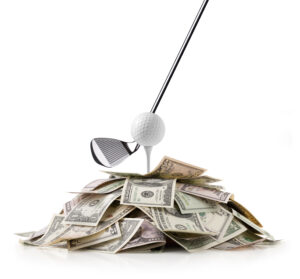LIV Golf Players Such As Phil Mickelson Sue The PGA Tour In 106-Page Complaint
Do the professional golfers, represented by high-powered law firms, have a strong case for damages and, in particular, injunctive relief?
 Many prominent professional golfers have initiated a federal lawsuit in San Francisco against the PGA Tour. The complaint, filed on August 3, seeks a jury trial and is a whopping 106 pages in length, not including exhibits.
Many prominent professional golfers have initiated a federal lawsuit in San Francisco against the PGA Tour. The complaint, filed on August 3, seeks a jury trial and is a whopping 106 pages in length, not including exhibits.
Phil Mickelson, Talor Gooch, Hudson Swafford, Matt Jones, Bryson DeChambeau, Abraham Ancer, Carlos Ortiz, Ian Poulter, Pat Perez, Jason Kokrak, and Peter Uihlein have sued the PGA Tour under Sections 1 and 2 of the Sherman Antitrust Act and seek not only damages but also injunctive relief. They claim that the PGA Tour is threatened by the entry of LIV Golf and has ventured to harm the golfers’ careers and livelihoods based on their decision to play in LIV Golf tournaments.
“As part of its carefully orchestrated plan to defeat competition, the Tour has threatened lifetime bans on players who play in even a single LIV Golf event,” states the complaint. “It has backed up these threats by imposing unprecedented suspensions on players (including the Plaintiffs) that threaten irreparable harm to the players and their ability to pursue their profession.”

Generative AI In Legal Work — What’s Fact And What’s Fiction?

The complaint interestingly makes reference to a comment made by PGA Tour representative David Love III, uttered just one day prior to the filing of the complaint, who said, “We hold all the cards. We say to the FTC and to Washington, ‘No, we support the rules. We don’t want those guys playing. We don’t care what the courts say.’ The nuclear option is to say ‘Fine, if they have to play in our events we just won’t play.'”
Readers of this site will appreciate the next line of the complaint, which says, “The Tour is not above the law.” But do the professional golfers, represented by high-powered law firms, have a strong case for damages and, in particular, injunctive relief?
Its Section 1 claim seems to be centered on the PGA Tour unlawfully agreeing with other entities in the golf ecosystem, such as the European Tour, to establish a group boycott to prevent LIV Golf from succeeding. The plaintiffs will need to prove that agreements were made between the PGA Tour and third parties as opposed to others, such as the European Tour, acting independently or parallel to the PGA Tour. There will need to be a clear showing of conspiracy or concerted action for a preliminary injunction to be issued.
The golfers’ Section 2 claim is focused on the PGA Tour unlawfully maintaining its monopoly over the market for the services of professional golfers for elite golf events. While the plaintiffs speak to the PGA Tour’s monopoly power, they need to prove more than that. Specifically, they must show that the PGA Tour acquired or maintained that power willfully, as opposed to the power having arisen and continued by growth produced by the development of a superior product, business acumen, or historic accident. Importantly, the PGA Tour can only be found to have the monopoly power required to establish a violation of Section 2 of the Sherman Act if it has the ability to control prices or exclude competition. Given that the professional golfers have found a new home with LIV Golf and are earning much more money than they were with the PGA Tour, it seems like the Section 2 claim will be tough to prove.
Sponsored

How Transactional Lawyers Can Better Serve (And Maintain) Their Clients

AI’s Impact On Law Firms Of Every Size


Law Firms Now Have A Choice In Their Document Comparison Software

Law Firms Now Have A Choice In Their Document Comparison Software
Darren Heitner is the founder of Heitner Legal. He is the author of How to Play the Game: What Every Sports Attorney Needs to Know, published by the American Bar Association, and is an adjunct professor at the University of Florida Levin College of Law. You can reach him by email at heitner@gmail.com and follow him on Twitter at @DarrenHeitner.
Sponsored

The Business Case For AI At Your Law Firm









